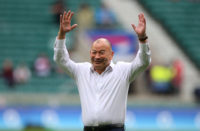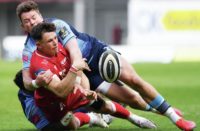Wales had beaten South Africa just once in more than a century when they lined up under the Cardiff roof at the end of the Autumn series of 2016.
Next Saturday they will expect to beat them for the fourth time since then. Should the Alun-Wyn Jones brigade match their ambition with another win, they will have seen the Springboks off twice as often in two years as in the previous 110.
The days of Wales being happy to give the Boks a run for their money have gone, and not before time. As Lions centre Jonathan Davies declared after last week’s scruffy home win over Australia: “We expect to win the big games now. We have strength in depth, we have confidence and this is our stadium.”
When the Boks pitched up there two years ago for the fixture which marked a turning of the tide for Wales, they were at an all-time low. Their defeat by Italy in Florence the previous week left Jones & company no excuse for another failure against demoralised opponents.
They won as comfortably as 27-13 suggests and have continued to win since, not that the most recent one, in Washington last June, demands to be taken seriously given that it was less a Test match, more a money-making stunt between a mixture of 2nd and 3rd XVs.
Saturday’s return has all the makings of the real thing. The Boks under Rassie Erasmus may have let England off the hook at Twickenham a fortnight ago but they achieved the most sensational win of the year in Wellington two months ago, coming from behind to beat New Zealand 36-34.
They would surely have done so again in Pretoria three weeks later had Erasmus not made what seemed at the time a strange decision. With eight minutes remaining he withdrew his two most influential players, hooker Malcolm Marx and scrum-half Faf de Klerk.

In their absence a 12-point lead dissolved. Converted tries in the last four minutes from Scott Barrett and Ardie Savea turned an All Black crisis into a victory improbable judged even by their unfathomable powers of recovery.
Erasmus will take no such liberties in Cardiff this weekend. After the phoney fixture against Scotland and the departure of the forlorn Wallabies, a match forgettable in every aspect other than the result, this promises to be acid test of Wales’ ranking at No.3 in the world.
While the management will have drawn satisfaction from keeping a clean try sheet, they will be concerned at their failure to score one. Australia had been leaking tries at the rate of almost four-a-match over their seven Rugby Championship-Bledisloe Cup engagements.
That Wales deserved to edge a match seriously low on quality ought not to disguise the fact that they created precious little, happy in the end to squeeze home on penalties. Beating the Boks for a fourth time on the bounce will require something more.
PETER JACKSON























